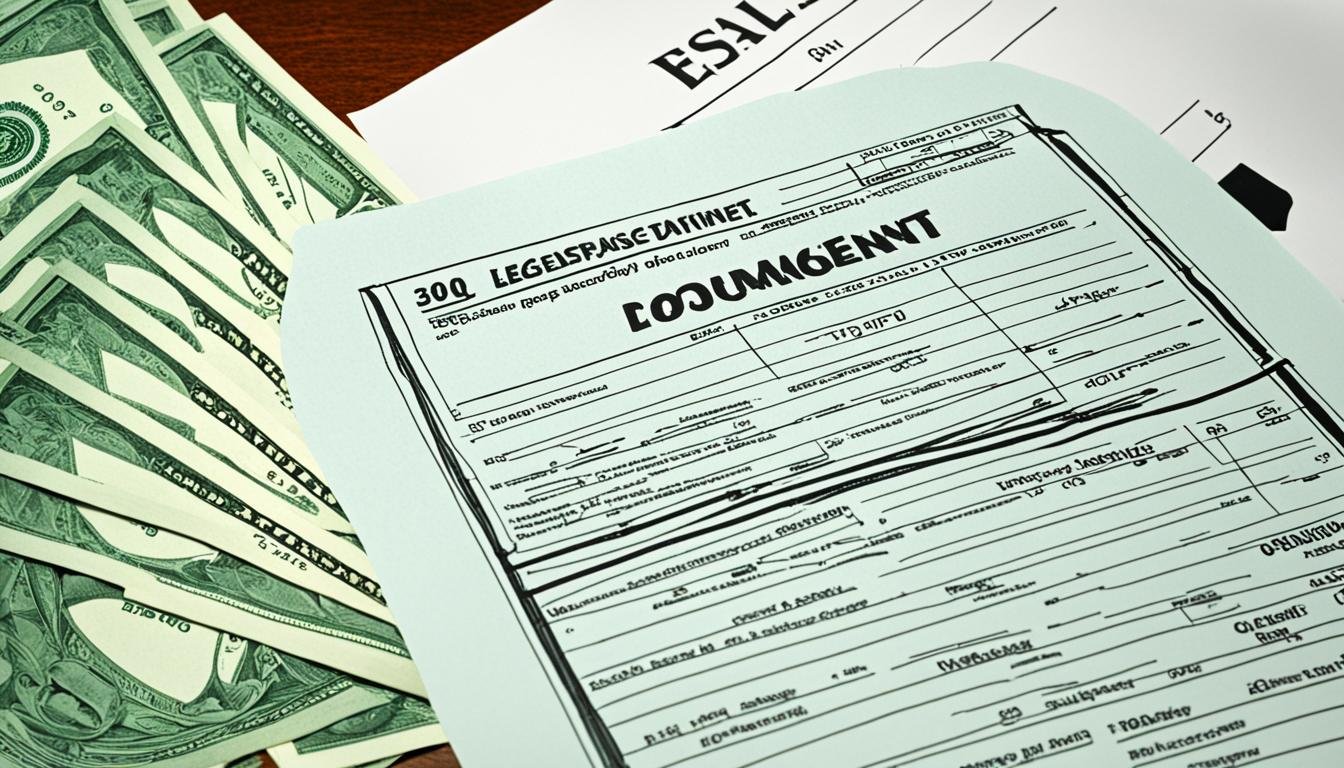Did you know over 90% of civil cases in the U.S. are settled outside of court? That’s right, most legal disputes end with agreements made outside the courtroom. This approach offers a faster, more efficient way to solve problems than going to trial.
When you’re dealing with a legal issue, knowing how out-of-court settlements work is very helpful. Whether you’re negotiating a deal, trying mediation, or looking into other options, being informed helps. It empowers you to make the best choices and can lead to a better result for your case.
The Advantages of Out-of-Court Settlements
Out-of-court settlements save time and money. They work faster than court trials. This means both sides spend less.
Settlements also mean less stress. They offer a quick solution, which reduces emotional pain. This way, everyone can move on sooner with their lives or business.
Settlements give certain outcomes. There’s more control compared to uncertain jury verdicts. With settlements, the results are clear, offering peace of mind.
A skilled lawyer can get a good settlement, even if it’s lower than a trial might offer. They use their knowledge to ensure fair compensation.
Benefits of Out-of-Court Settlements:
- Time and money savings
- Reduced stress and emotional strain
- Greater certainty and control over the outcome
- Opportunity to develop a comprehensive legal strategy
Out-of-court settlements are practical and efficient. They save time, reduce stress, and provide certain outcomes. If you’re considering this option, talk to your attorney. It might be the right way to solve your case.

Different Modes of Alternative Dispute Resolution
Alternative dispute resolution (ADR) includes ways to settle disputes outside of court. These methods are good alternatives to litigation. They let parties have more control over how they solve their issues. Here are different ADR modes:
Neutral Evaluation
A neutral person checks the merits of the case in neutral evaluation. They give an assessment. This helps both sides see their case’s strengths and weaknesses. It aids them in making smarter decisions about settling.
Negotiation
Negotiation is a common ADR form. It lets parties settle the dispute themselves. This can be through talking or writing. The settlement terms, like the resolution amount and any extra agreements, are decided by the parties.
Conciliation
Conciliation uses a neutral person, called a conciliator, to find a solution. The conciliator helps the parties talk and keeps things positive. They guide everyone to a solution that works for all.
Mediation
Mediation also helps negotiate between parties for a good outcome. But unlike conciliation, the mediator doesn’t suggest solutions. They only help the parties talk and look at all options for solving their problem.
Arbitration
Arbitration is a formal ADR type. It can be national or international. A single arbitrator or a panel makes a binding decision after hearing both sides. The decision is based on the evidence and arguments given.
Each ADR mode has its benefits. Some might be better for certain disputes. Parties should think about their situation and goals. This helps them pick the best way to solve their disagreement.

Confidentiality and Tax Implications of Settlements
Settlements outside of court offer privacy. Unlike trial documents, settlement files stay private. This keeps your personal info away from the public.
But, it’s key to know that settlement money is often taxable. Money for physical injuries might not be taxed. Yet, money for things like emotional distress usually is.
To handle the tax side of your settlement, talking to a tax pro is vital. They offer advice for your unique situation. This advice keeps you in line with tax laws.
Getting professional advice helps you avoid IRS problems.
Knowing about the privacy and tax parts of settlements can help. It lets you keep your info safe while dealing with taxes right.
Don’t Compromise Confidentiality
Privacy is key in out-of-court settlements. Keeping files private protects your info. It keeps the details between those directly involved.
This way, your reputation stays safe from the public eye. It also keeps trust strong between everyone, making it easier to solve things.
Navigating Taxable Damages
It’s crucial to understand your settlement’s tax impacts. Money for physical injuries isn’t usually taxed, but other types might be.
Talking to a tax expert can clear up what you owe. They’ll navigate tax laws with you, identifying any tax you might face.
This guidance can prevent unwanted tax surprises. It helps you meet your tax duties, giving you peace of mind and avoiding IRS issues.
Conclusion
Settling disputes outside of court can be a smart move. It saves time, cuts costs, and reduces stress for everyone involved. Through negotiation, mediation, or arbitration, parties find quicker, simpler solutions. Choosing the right method for your situation is key.
Another important aspect is keeping things confidential. This ensures personal data and sensitive details are protected. There’s also a need to think about taxes on the settlement amount. Not all damages are taxed the same way. Talking to a tax expert helps understand these differences.
Out-of-court settlements streamline resolving legal matters. They help create strategies that meet individual or business needs. Need help with these settlements in California? Contact the Super Attorneys of Irvine at 949-996-9546 or visit businesslawyersirvine.com for expert legal advice.

